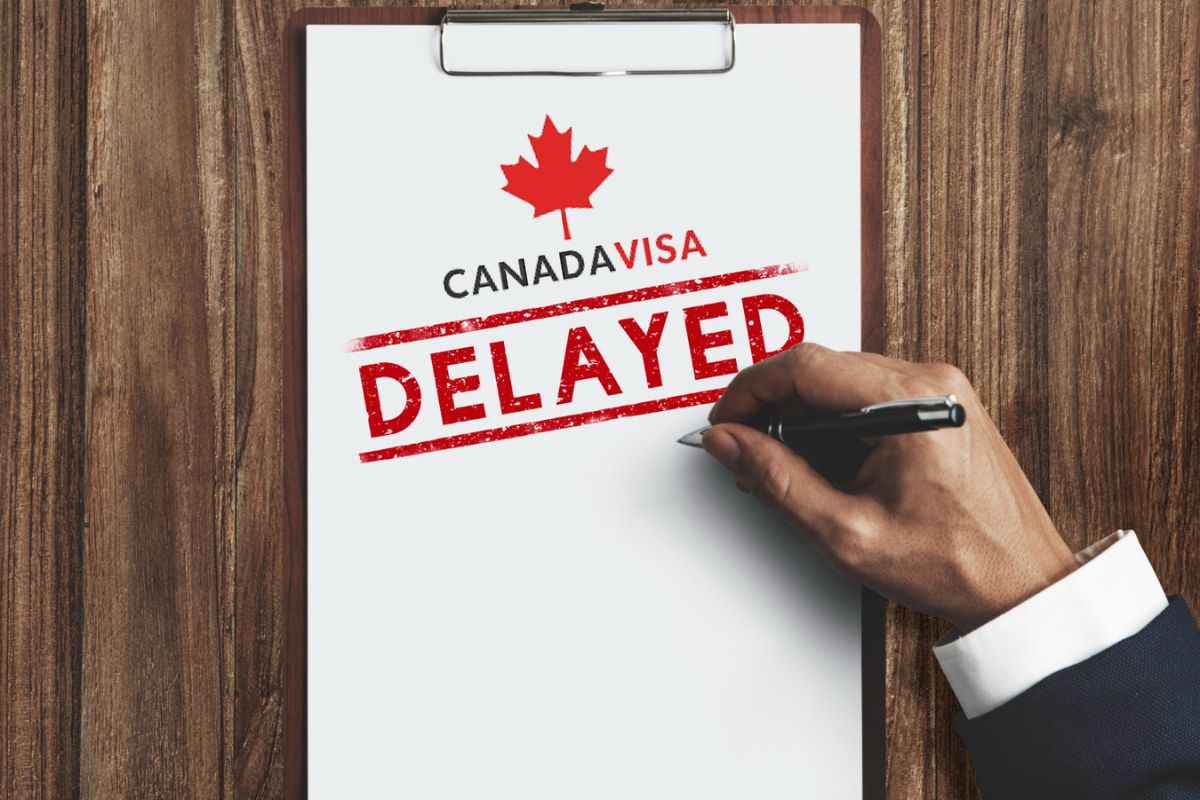Canada’s immigration system is grappling with a significant backlog issue, causing delays in the processing of visa applications. According to recent data from IRCC, the immigration backlog grows to 2.248 Million in May.
The Immigration backlog includes applications for Permanent Residence, Citizenship, Temporary Residence and Work Permits.
Factors such as the COVID-19 pandemic, staffing shortages, high demand, and outdated technology contribute to the problem, leaving applicants frustrated. However, there are steps you can take to obtain information about the status of your application.
Steps to Take for Canada Visa Delays

Follow these guidelines to navigate the process effectively and stay informed.
1. Check Your Application Status
The first step is to visit the Immigration, Refugees and Citizenship Canada (IRCC) website and check the status of your application. The website provides a processing times tool that offers an estimate of the expected wait times. To avoid unnecessary delays, ensure that all your documentation is complete and up to date.
2. Contact IRCC for Information
If you require more information about your application and the reasons behind the delay, consider filing a web form enquiry or contacting the IRCC customer care number. Through these channels, you may receive a substantive response regarding the status of your application.
In case you do not receive satisfactory answers or your inquiries go unanswered, reaching out to a local member of Parliament can be helpful. They can file a status update request on your behalf.
3. Request GCMS, CAIPS, or FOSS Notes
For applications submitted after 2010, you have the option to file an Access to Information and Privacy (ATIP) application. This allows you to obtain valuable insights by accessing your Global Case Management System (GCMS) notes, Computer Assisted Immigration Processing System (CAIPS) notes, or Field Operations Support System (FOSS) notes.
These records shed light on any concerns or doubts raised by IRCC officers, enabling you to address them with additional evidence.
4. Seek Legal Assistance
Consider hiring an immigration lawyer who specializes in these matters. They can guide you through the process and help you submit a formal request letter via the IRCC web form. The lawyer can emphasize the extended processing time and highlight the negative impact of the delay, strengthening your case for expedited processing.
5. Applying for an Order of Mandamus
If you have exhausted all other options without obtaining a resolution, you may choose to apply for an Order of Mandamus.
A Mandamus is an order from a court to an inferior government official ordering the government official to properly fulfil their official duties or correct an abuse of discretion.
This legal process involves seeking relief from the Federal Court, which places pressure on IRCC to make a decision on your application. It is crucial to have the assistance of an immigration lawyer as the threshold for obtaining an Order of Mandamus is high.
- A public legal duty to process the application exists.
- The duty is owed to the applicant.
- The applicant has fulfilled all conditions that give rise to the duty, and there has been an unreasonable delay.
- No other adequate remedy is available.
- The requested order will have practical value or effect.
- There are no equitable barriers to the relief sought.
- An order of mandamus is warranted based on the balance of convenience.
If you are facing delays with your Canada immigration application, it is important to take action. By following the steps outlined above, you can increase your chances of getting your application processed in a timely manner.
Additional Tips

Here are some additional tips for dealing with Canada immigration application delays:
Be patient: Processing times for Canadian immigration applications can be long, so it is important to be patient. However, you should also be proactive and take steps to track the status of your application and address any issues that may be delaying it.
Stay organized: Keep track of all of your application documents and correspondence with the IRCC. This will help you to stay organized and to provide the IRCC with any information they need in a timely manner.
Be prepared to provide additional information: The IRCC may request additional information from you during the processing of your application. Be prepared to provide this information promptly.
Don’t give up: If your application is delayed, don’t give up. Keep taking steps to track the status of your application and to address any issues that may be delaying it. With patience and perseverance, you will eventually get your application processed.
By following these steps and seeking appropriate assistance, you can navigate the challenges posed by delays in the Canada immigration application process effectively.
Follow and connect with us on Facebook, Twitter, LinkedIn, Instagram and Google News for the latest travel news and updates!





